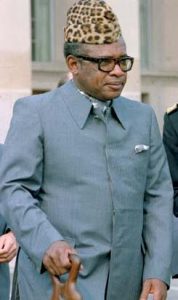By Kwasi Gyamfi Asiedu*

A Sept 10th, 1960 AP picture in which Lumumba was speaking against opposition to him in the Congolese Parliament

President Joseph Kabila of the DRC
The city of Brussels has named a public square in honor of Patrice Lumumba, the leader of the independence struggle and first prime minister of the Democratic Republic of Congo. The plaza leads into a neighborhood in the city that is home to many Congolese migrants.
While many locals welcomed the recognition of a man often idolized by young Africans as a hero of the African independence movement, many others have commented on how the square naming is a merely symbolic move by a country which rarely acknowledges or comes to terms with its dark and racist colonial past.
Patrice Émery Lumumba and the party he founded won the majority of parliamentary seats in Congo’s first elections in May 1960. The bespectacled Lumumba was the poster boy of the resistance against Belgian colonial occupation and his extempore defiant speech in June 1960 during the independence ceremony remains a memorable one.
Lumumba became the country’s first prime minister upon independence on June 30, 1960 at the age of 34. But his premiership would not last long. Barely three months later, he was toppled in a Western-backed coup, after being arrested and tortured. On Jan. 17, 1961, he was executed and his body, along with those of two associates, was cut up with a hacksaw and soaked in sulphuric acid—erasing any trace of his physical being.
Since then, Belgium has made a conscious effort to shy away from its long lasting colonial legacy especially what it did in DRC. In 2002 (41 years later), Belgium finally admitted responsibility for being part of the plot, that involved the CIA driven by the Cold War and pursuit of Congo’s valuable minerals, to kill Lumumba and his associates. His assassination has been described as “the most important assassination of the 20th century.”

King Leopold 11 who engineered the colonial warfare on the Congo. Things have never been the same again

‘King’ Mobutu
While colonial occupying forces have often had destructive legacies in Africa,even by those standards, Belgium’s rule in Congo is often singled out as one of the most brutal. Rich in valuable precious minerals, DRC was Belgium’s crown jewel. King Leopold II declared the territory, which is about 70 times the size of Belgium, along with its people, his personal possession. The capital, Kinshasa, was formerly known as Leopoldville—though the king himself never stepped foot there.
Leopold used the wealth he amassed in Congo to embark on massive developmental works at home while local Congolese perished on rubber farms where failure to meet quotas would result in the severing of hands and feet by his officers. Historians believe his heavy handed remote rule was responsible for the deaths of 10 million people. In his now famous Independence Day speech (made in the presence of King Baudouin of Belgium), Lumumba described Belgian colonization as “[a] humiliating bondage forced upon us.”
Statues, public buildings and boulevards immortalizing Leopold are dotted across Brussels and the country at large. Unlike the successful #RhodesMustFall campaign, that led to the removal of the statues of another European colonial ruler, Cecil Rhodes, and plans to rename a university in South Africa, Leopold remains on the plinth.
The status of his statues and monuments which has been the subject of a long running campaign to have them removed, evokes spirited public discussion akin to those of Confederate monuments in the US.
Quartz Africa from where this piece was originally published introduced the author as a Ghana based freelance journalist. He can be followed on (@journokwas)




























